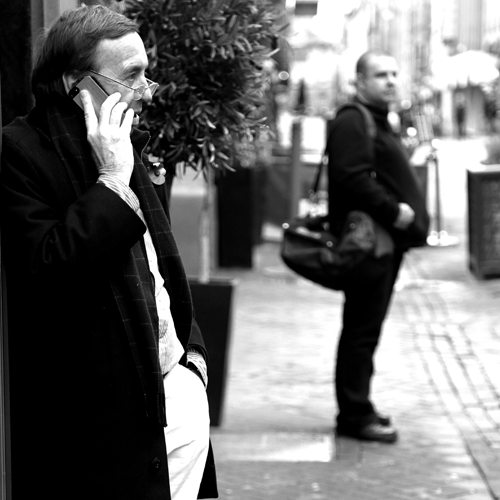Olmstead v. United States and the NSA Privacy Debate

In the NSA privacy debate leading up to the expiration of several key provisions of the Patriot Act, an overturned U.S. Supreme Court case popped up more than once.
The decision in Olmstead v. United States, 277 U.S. 438 (1928) highlights that while technology may change, the arguments about our privacy rights and government overreach do not.
The 1928 case addressed whether use of evidence in private telephone conversations intercepted via wiretapping violated the Fourth Amendment. The defendant in the case, Roy Olmstead, was a police officer in the City of Seattle, as well as the region’s most successful bootlegger. He was only caught after federal investigators listened in on his telephone conversations for a period of several months.
Olmstead challenged his conviction on Fourth Amendment grounds. However, the majority ultimately concluded that the wiretapping did not amount to an illegal search or seizure. As explained by Chief Justice William Howard Taft, “The Amendment does not forbid what was done here. There was no searching and there was no seizure. The evidence was secured by the use of the sense of hearing and that only. There was no entry of the houses or offices of the defendants.”
In 1967, the Supreme Court ruled that the case was wrongly decided. In Katz v. The United States, the Court held that wiretapping by state and federal investigators was subject to warrant requirements. While that could have been the end of it, Olmstead is still mentioned in privacy debates because of the dissent authored by Justice Louis D. Brandeis.
In his dissent, Justice Brandeis wrote: “The right to be left alone—the most comprehensive of our rights, and the right most valued by civilized men. To protect that right, every unjustifiable intrusion by the government upon the privacy of the individual, whatever the means employed, must be deemed a violation of the Fourth Amendment.”
Plessy v. Ferguson
Much like in the Supreme Court’s Plessy v. Ferguson 63 U.S. 537 (1896) decision, the opinion outlined in the dissent ultimately became law. In fact, the “right to be left alone” later formed the basis for the Court’s reasoning in Roe v. Wade and several other influential rulings. During his recent filibuster of the Patriot Act, Sen. Rand Paul stated about Olmstead:
[A]s so often occurs in our history, sometimes the dissent becomes the majority opinion and becomes profound because it was there at the time… People now remember Justice Brandeis. It is probably one of the most famous quotes in jurisprudence, that the right to be left alone is the most cherished of rights, that it’s the most valued among civilized men.
Of course, the tougher question is where to draw the line between law enforcement and personal privacy. As in 1928, the U.S. courts will continue to outline the constitutional parameters of our right to be left alone. Sometimes, they will get it right the first time, and other times it may take a bold dissent to ultimately shift the Court’s opinion.
Previous Articles
SCOTUS Decision in Bowe v. United States Is First of the 2026 Term
by DONALD SCARINCI on February 5, 2026
In Bowe v. United States, 607 U.S. ___ (2026), the U.S. Supreme Court held that Title 28 U.S.C. § ...
SCOTUS Rules State Can’t Immunize Parties from Federal Civil Liability
by DONALD SCARINCI on January 29, 2026
In John Doe v. Dynamic Physical Therapy, LLC, 607 U.S. ____ (2025) the U.S. Supreme Court held that...
Supreme Court to Address Racial Discrimination in Jury Selection
by DONALD SCARINCI onWhile the U.S. Supreme Court has concluded oral arguments for the year, it continues to add cases t...
The Amendments
-
Amendment1
- Establishment ClauseFree Exercise Clause
- Freedom of Speech
- Freedoms of Press
- Freedom of Assembly, and Petitition
-
Amendment2
- The Right to Bear Arms
-
Amendment4
- Unreasonable Searches and Seizures
-
Amendment5
- Due Process
- Eminent Domain
- Rights of Criminal Defendants
Preamble to the Bill of Rights
Congress of the United States begun and held at the City of New-York, on Wednesday the fourth of March, one thousand seven hundred and eighty nine.
THE Conventions of a number of the States, having at the time of their adopting the Constitution, expressed a desire, in order to prevent misconstruction or abuse of its powers, that further declaratory and restrictive clauses should be added: And as extending the ground of public confidence in the Government, will best ensure the beneficent ends of its institution.





